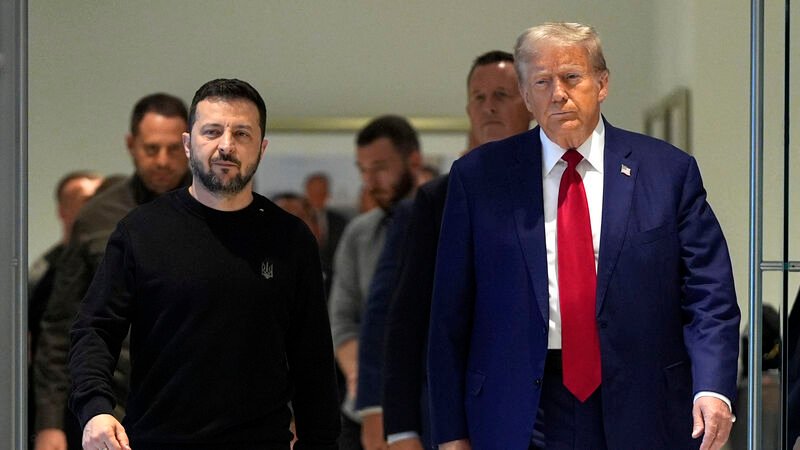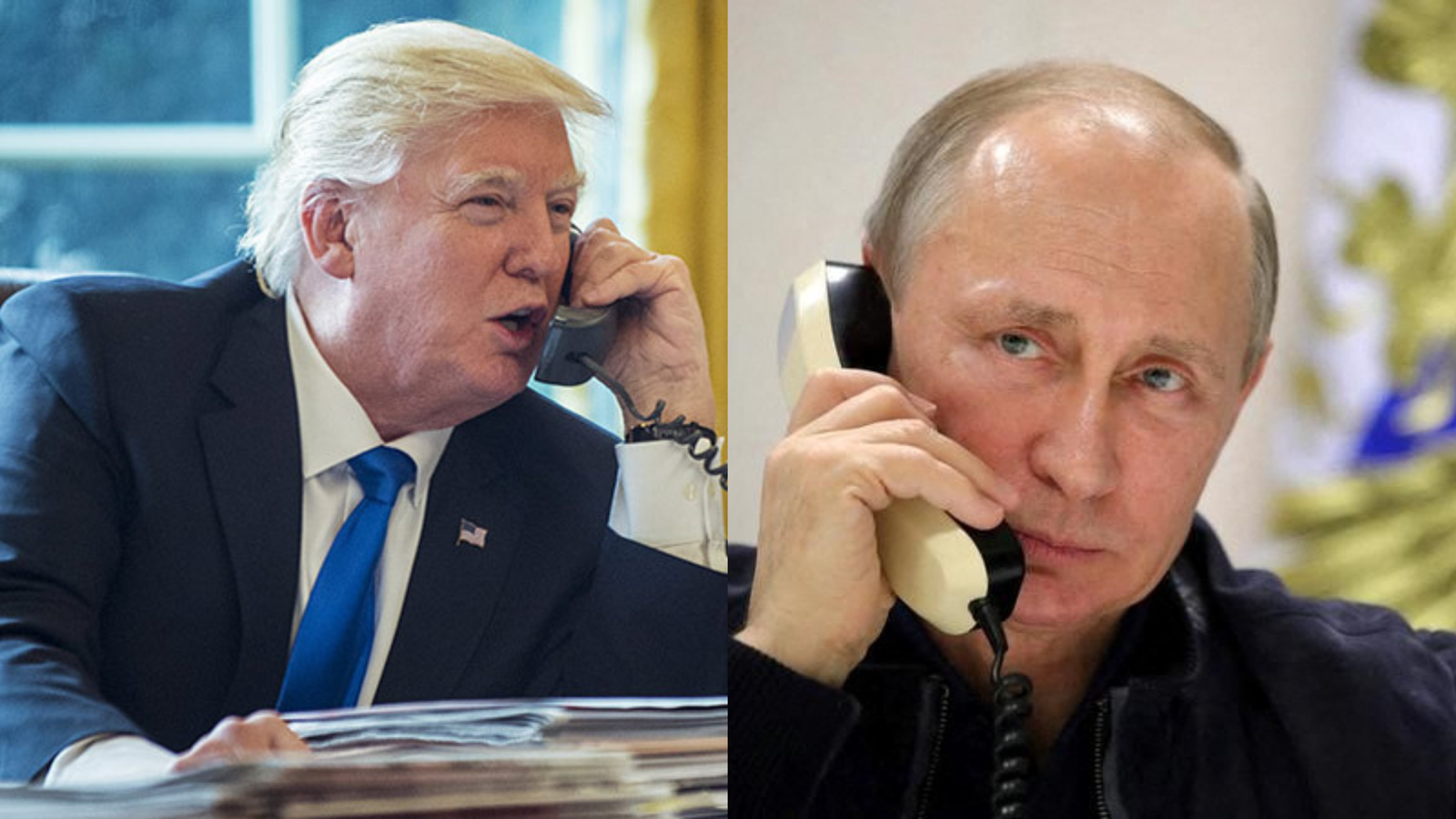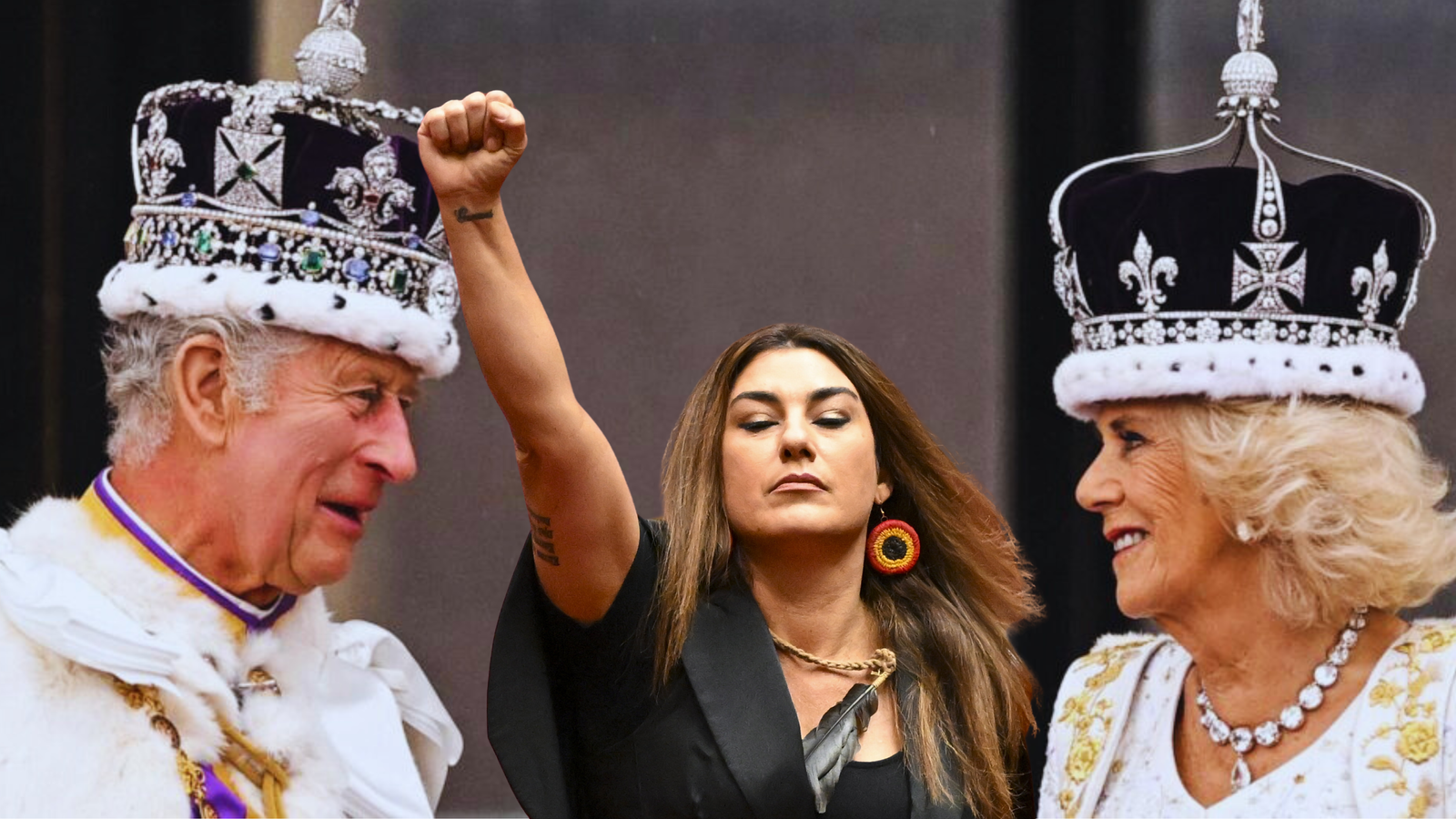President-elect Donald Trump warned Vladimir Putin against escalating the Ukraine war, emphasizing the U.S. military presence in Europe. Meanwhile, President Biden stressed the need for continued U.S. support to Ukraine.
Table of Contents
Background: Trump’s Campaign Promises on Ukraine
In a recent high-stakes phone conversation, U.S. President-elect Donald Trump advised Russian President Vladimir Putin against escalating the war in Ukraine, according to a report from The Washington Post. During the call, Trump cautioned Putin, pointing to the significant U.S. military deployment across Europe as a potential deterrent against further Russian actions in Ukraine. The call marks a key moment in Trump’s diplomatic outreach just weeks before his formal inauguration.
Trump’s conversation with Putin follows a similar discussion with Ukrainian President Volodymyr Zelenskyy, with whom he spoke a day earlier. Throughout his campaign, Trump pledged to bring an immediate end to the conflict, claiming he could secure peace “within a day.” However, in his recent call with Putin, he refrained from specifying a concrete solution for de-escalation or peace negotiations, indicating a broader approach to addressing the conflict in Eastern Europe.

Kremlin’s Reaction and Russian Demands
Following the call, Kremlin representatives confirmed Putin’s willingness to discuss Ukraine with Trump. However, they emphasized that this discussion should not be interpreted as a change in Moscow’s stance. The Kremlin reiterated its core demands for ending the conflict, which include Ukraine abandoning its NATO aspirations and withdrawing military presence from four regions—Donetsk, Luhansk, Kherson, and Zaporizhzhia—annexed by Russia in 2022 and 2023.
Putin’s demands remain a central point of contention, as Ukraine has consistently rejected these terms, deeming them a violation of its sovereignty. In his latest statements, Ukrainian President Zelenskyy has continued to call for a “victory plan,” advocating for increased military and logistical support from Western allies to counter Russian advances rather than negotiating away Ukrainian territorial integrity.
Ukraine’s Response: Denial of Prior Knowledge
Ukraine’s foreign ministry has since responded to reports of the Trump-Putin call, stating that they were not informed about the conversation before it occurred. Heorhii Tykhyi, a spokesperson for Ukraine’s foreign ministry, refuted claims that the Ukrainian side was briefed in advance or had any influence over the call’s content. “Reports that the Ukrainian side was informed in advance of the alleged call are false,” Tykhyi told Reuters, clarifying that Ukraine neither endorsed nor opposed the call’s timing or content.

Biden Administration’s Perspective on the Ukraine Crisis
Meanwhile, President Joe Biden has continued to advocate for consistent U.S. support to Ukraine. National Security Adviser Jake Sullivan affirmed that Biden, who will remain in office for the next 70 days, aims to ensure a smooth transfer of power and secure bipartisan backing for ongoing military aid to Ukraine. Sullivan underscored the Biden administration’s view that any withdrawal of U.S. support would lead to greater instability across Europe. “President Biden will have the opportunity to make the case to Congress and to the incoming administration that the U.S. should not walk away from Ukraine,” Sullivan said, urging Trump’s team to consider the long-term consequences of a shift in U.S. policy.
Implications for U.S. Foreign Policy and the Ukraine Conflict
As Trump’s transition team prepares to take office, his approach to foreign policy, particularly concerning the Ukraine conflict, is drawing international scrutiny. Trump’s rhetoric during the campaign suggested a quick-fix approach to the war in Ukraine, but analysts caution that achieving peace will require careful negotiation with NATO allies, Congress, and the Ukrainian leadership.
While the Trump-Putin call may signal a shift in diplomatic tone, the complexity of the Ukraine conflict, coupled with entrenched interests from both Russia and Ukraine, poses significant challenges to any rapid peace resolution. As global observers monitor Trump’s next steps, the potential implications for U.S.-Russia relations, NATO, and broader European stability remain at the forefront of international discourse.




